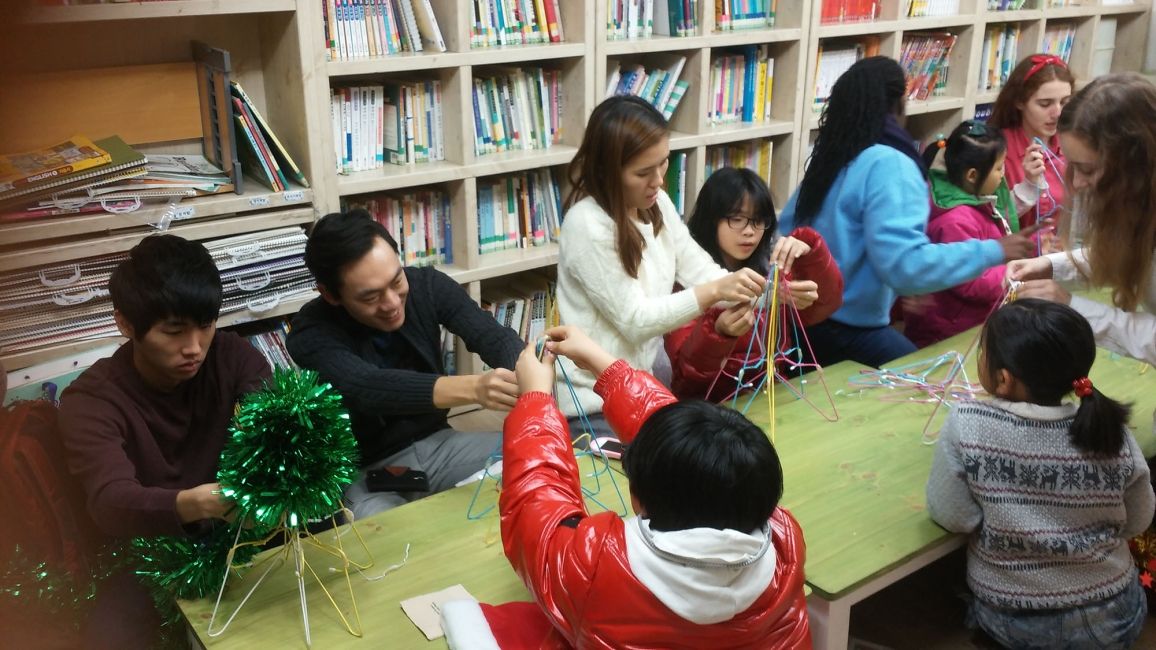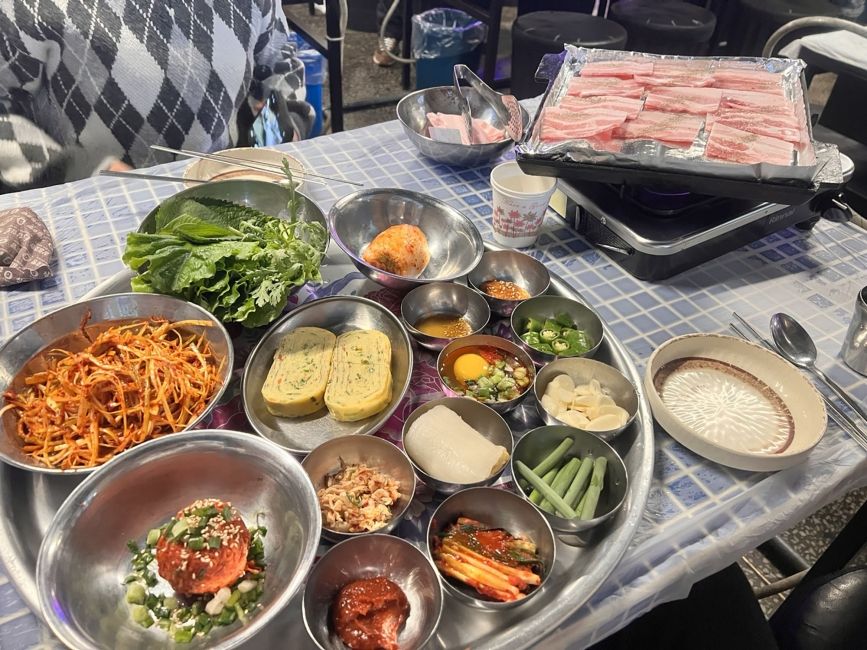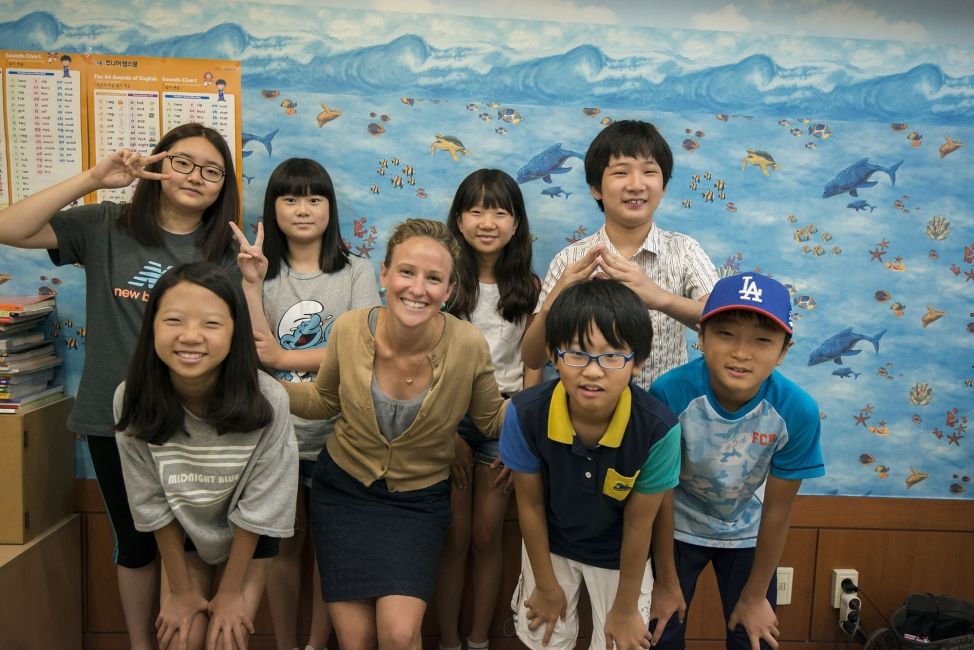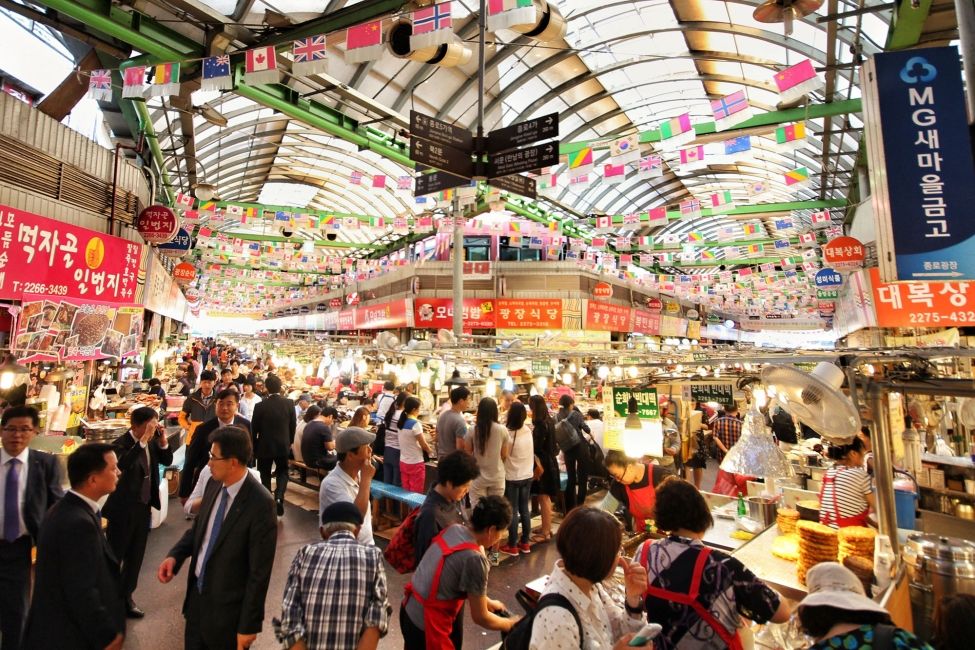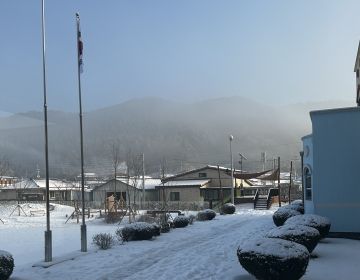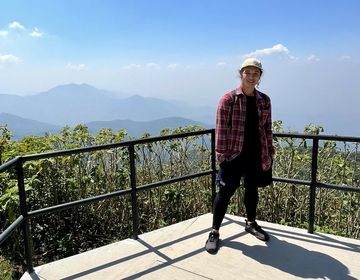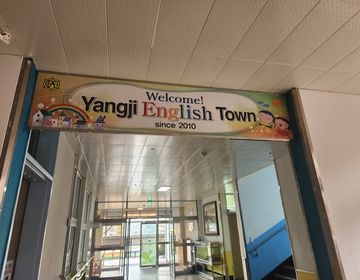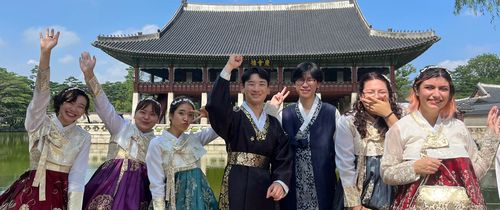
English Teaching Jobs in South Korea: Public vs. Private Schools
South Korea is one of the most popular locations to teach English abroad. The first thing to know is that there are two distinct types of ESL positions in South Korea: jobs at public schools and jobs at private schools. CIEE’s Teach in South Korea program can help you pursue either type of job, and our experienced staff can advise you while you are deciding which is your top choice.
We’ll start with a quick introduction, then dive into a detailed comparison below.
What Is the EPIK Public School Program?
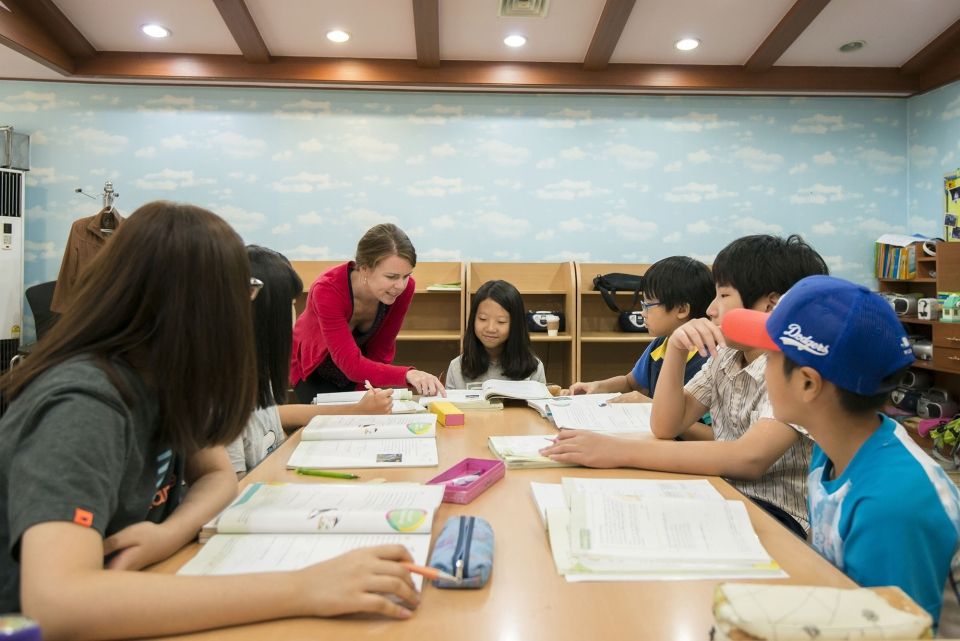
Teaching positions in South Korea’s public school system are arranged by EPIK, a Korean government program. CIEE is an official EPIK partner and provides candidates with timelines, guidance, and tips for applying to EPIK and navigating the complicated and competitive EPIK application process. For an overview of CIEE’s process, be sure to read our Public School Timeline.
What Are Hagwons?
South Korea also has a system of private, for-profit study academies, called hagwons, hakwons, or cram schools. Many Korean students study English and other subjects at hagwons after their public school day is finished. CIEE has relationships with dozens of trusted hagwons in Korea that recruit foreign teachers, and we can get you ready and arrange hiring interviews for you. For an overview of CIEE’s process, be sure to read our Private School Timeline.
Which School Type Is Better?
It depends! Both are suitable for first-time teachers or teachers with previous experience. Consider what factors are most important to you and choose the school type that best fits. We put together this page as a guide to help you with your decision!
Review the comparison below and note the pros & cons for each school type:
Public vs Private Schools in Korea – Similarities
Teaching jobs at public and private schools in Korea share many similarities and both school types are popular with foreign teachers. The following are some of the common features you can expect from either type of school.

Job Benefits: Flight, Housing, and Insurance
In addition to salary, both types of schools provide:
- Reimbursement for part or all of a one-way flight to South Korea.
- Rent-free housing with basic furnishings: bed, table, fridge, etc.
- Enrollment in Korea’s National Health Insurance system.
With either school type, the salary and rent-free apartment make it easy to save money while teaching in South Korea.
Age of Students
At both types of schools, most of your classes will be with primary school children (6-12 years old). Some private school jobs also have kindergarten ages, and some public-school jobs also have middle school ages, but all applicants should be ready to work with primary school as their main focus.
Contract Duration
Both types of schools require a 12-month contract. Upon successful completion of the contract, both types of schools will pay a completion/severance bonus equal to about one month’s pay.
Public vs Private Schools in Korea - Differences
Despite the similarities outlined above, there are some key differences between teaching at public and private schools in Korea that make the experience of teaching at each school type unique. Read about the key differences below so you can decide which school type will be a better fit for you depending on your personal preferences.
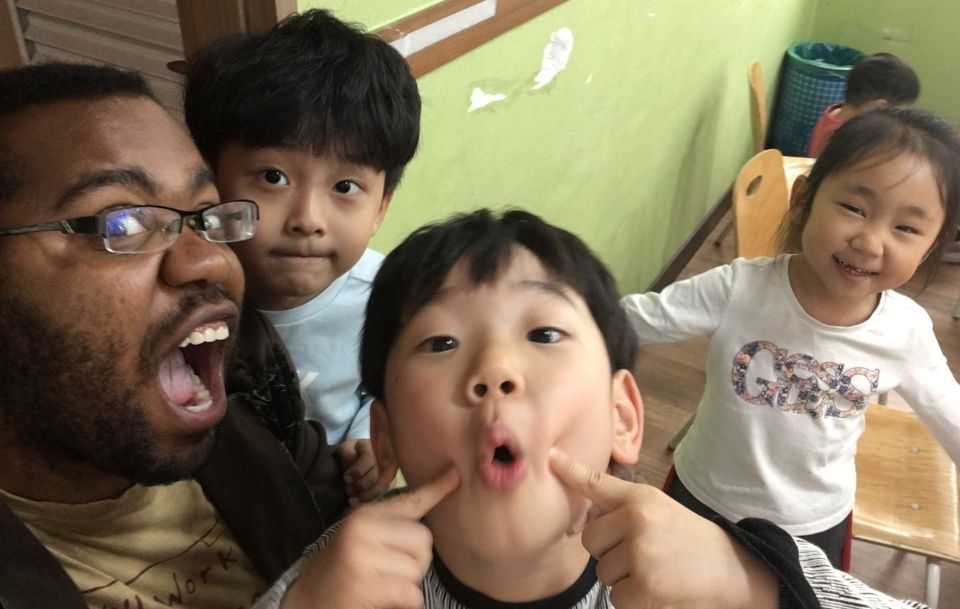
Compensation
For public schools, the entry-level salary range is about 2.2 to 2.6 million won/month, depending on the location and teaching credentials.
For private schools, salaries range from 2.3 to 3.0 million won/month. Higher salaries usually correspond to a slightly heavier workload or formal teaching experience.
With any of these salaries, it’s easy to live comfortably and still have money left at the end of the month for travel or savings!
Schedule and Workload
Jobs at both school types are considered full-time, and take place Monday to Friday. Expect 2-4 mandatory special events per year on Saturdays or Sundays, like a talent show, field trip, or sports day.
For public schools, you can expect daytime hours, i.e. 7-3 or 8-4pm. Within those times, expect a schedule with 20-25 hours of teaching per week (not counting time for commuting, meetings, free periods, assemblies, lesson prep, etc.).
For private schools, most jobs have evening hours like 11-7 or 2-10pm, but a small number of daytime-only kindergarten jobs exist. Expect a schedule with 30-34 hours of teaching per week (not counting time for meetings, free periods, meetings, assemblies, etc.).
Class Size, Co-Teachers, and Colleagues
For public schools, you can expect larger classes with 20-30 students. You’ll have a Korean co-teacher in the room with you, but you WON’T have other expat teachers at your school, due to EPIK's limited budget.
For private schools, you can expect smaller classes with 5-15 students. You’ll most likely WON’T work with a co-teacher, but you will have other expat teachers working at your school.
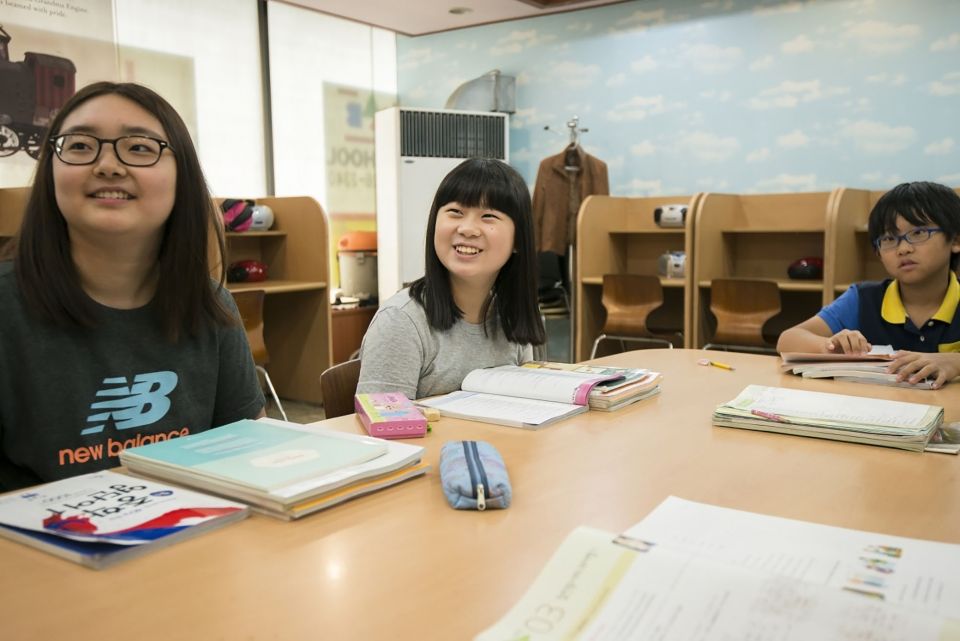
Friends and Partners
For public schools, married couples may request placement and joint housing together. For friends/partners, it’s best to apply as early as possible to increase your chances of being placed in the same location (Office of Education).
For private schools, it’s possible to work at the same employer as a friend, spouse, or unmarried partner!
So, if having a co-teacher is important for you, that may steer you toward public schools. But if having other expat teachers around is important, that may steer you toward private schools.
Locations and Placement Preferences
For public schools:
- EPIK only allows you to list one major city or province as your preference. It’s best to apply as early as possible as EPIK does their best to prioritize an applicant’s preferred location. While location preferences are not guaranteed, they are taken into consideration.
- While Seoul is extremely competitive, CIEE alum have been placed in Seoul as EPIK Teachers.
- Successful EPIK candidates receive their confirmed provincial assignment about 6-8 weeks before departure. Candidates will know their location (Office of Education) but will not receive their exact school assignment until EPIK Orientation.
- After arrival, candidates may be assigned a travel school along with their main school assignment. In rural locations, candidates may be assigned up to 3 specific schools and rotate between them during the work week. This may mean a longer commute compared to private schools.
For private schools:
- You can list as many major cities/provinces in your CIEE application. We’ll gather your preferences, and our placement team will do their best to arrange interviews in the areas of your choice.
- Seoul is extremely competitive and private employers based in Seoul prefer candidates with previous teaching experience. While CIEE alum have been placed at private employers in Seoul, please note that first-time teachers may prefer positions in Gyeonggi province (greater Seoul area) or other major cities.
- Private school candidates almost always work at a single school location, close by to their apartment, which keeps the commute to a minimum.
Vacation Time
In addition to paid national holidays, public schools give 24-26 paid vacation days per year, while private schools give 9-10 paid vacation days per year.
Teach in South Korea Programs
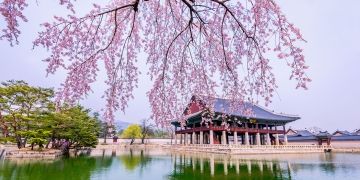
- South Korea
Preparation, public/private school placement, and support for teachers who already have teaching credentials and don’t need TEFL.

- South Korea
Teach English to elementary-aged students at a public or private school. Placements are in cities across the country. TEFL included!
CIEE Teach in South Korea Teacher Spotlight
Read first-hand experiences written by actual CIEE Teach in South Korea participants!
What’s It Like Teaching English at a Public School in South Korea?
Children run by yelling “Hello teacher!” one after another as I put on my work slippers. There are many differences between schools in the US compared to South Korea. I... keep reading
TWICE with CIEE: Aric in Korea
Aric is a CIEE alum who first participated in CIEE's Teach in Thailand program, then came back to teach in CIEE’s Teach in South Korea program. Read Aric’s experience in... keep reading
CIEE: What's It Like Teaching English in South Korea?
I arrived in South Korea during the fall and landed in the second Semester. It was an awkward start to my teaching journey, but I recently started Semester 1 in my elementary school. Being an English teacher is restless. From lesson plans to desk warming, something always needs to be done. A lot of things have changed for me since my first Semester. I have gained insight into school life in South Korea, learned how to improve my lessons, and connected better with my co-teachers.
